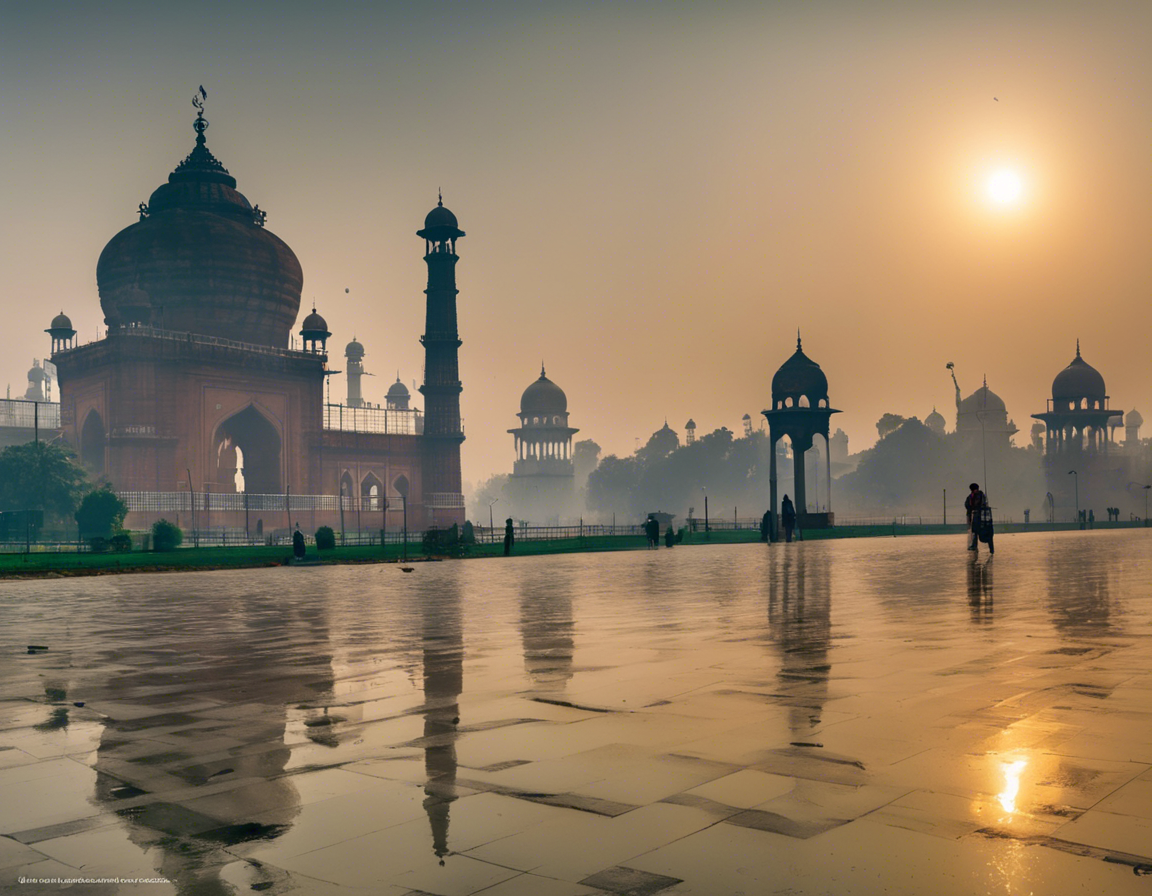Exploring Lucknow’s Temperature Trends
Introduction
Lucknow, the capital city of Uttar Pradesh in India, is well-known for its rich cultural heritage, delectable cuisine, and warm-hearted people. However, one aspect that often goes unnoticed is the city’s temperature trends. Understanding the fluctuations in temperatures can help residents and visitors better prepare for the weather conditions throughout the year. In this article, we will delve into the temperature patterns of Lucknow, highlighting the seasonal variations, the impact of geographical location, and climate change on the city’s weather.
Seasonal Temperature Variations
Lucknow experiences a blend of all four seasons – summer, monsoon, autumn, and winter. Each season brings a distinct change in temperature, making it essential for residents to adapt to the weather conditions accordingly.
Summer: Summer in Lucknow usually lasts from March to June, with temperatures soaring as high as 45-47 degrees Celsius. The scorching heat during this period can be intense, prompting residents to seek respite indoors or under the shade of trees. It is not uncommon for people to rely on air conditioning and cool beverages to beat the heat.
Monsoon: The monsoon season in Lucknow typically spans from June to September, bringing relief from the sweltering heat. The city receives a significant amount of rainfall during this period, rejuvenating the surroundings and providing a much-needed break from the hot summer months.
Autumn: Autumn in Lucknow, which occurs from October to November, offers a pleasant transition from the rainy monsoon season to the upcoming winter chill. Temperatures during autumn range from 25-30 degrees Celsius, making it an ideal time to explore the city’s outdoors.
Winter: Winter in Lucknow sets in from December to February, with temperatures dropping to as low as 3-5 degrees Celsius. The city experiences chilly mornings and evenings during this season, prompting residents to reach for their warmest clothing and indulge in hot beverages to stay cozy.
Geographical Influences on Temperature
Lucknow’s geographical location plays a significant role in determining its temperature trends. Situated in the central part of the Indo-Gangetic plains, Lucknow experiences a continental climate, characterized by hot summers and cold winters. The absence of major geographical barriers nearby allows the city to be exposed to varying weather patterns, influenced by the surrounding regions.
The Gomti River flowing through Lucknow also has a moderating effect on the city’s temperatures. The proximity to the river contributes to a slightly milder climate compared to other inland cities, as water bodies tend to regulate temperature extremes.
Furthermore, Lucknow’s elevation above sea level, approximately 123 meters, impacts its temperature variations. The city’s elevation, though not significant, can influence the overall climate and contribute to cooler evenings and mornings, especially during the winter season.
Climate Change and Temperature Trends
In recent years, Lucknow, like many other cities globally, has witnessed the impact of climate change on its temperature trends. The city has observed a gradual increase in average temperatures, leading to hotter summers and milder winters. This shift can be attributed to various factors, including urbanization, deforestation, and greenhouse gas emissions.
The rising temperatures in Lucknow have resulted in prolonged summer seasons, with heatwaves becoming more frequent and intense. Such changes in temperature patterns have significant implications for public health, agriculture, and the environment, necessitating proactive measures to mitigate the effects of climate change.
Conclusion
Lucknow’s temperature trends reflect a diverse range of climatic conditions, with distinct variations in each season. Understanding the city’s temperature patterns, influenced by geographical factors and climate change, is crucial for residents and visitors to adapt and prepare accordingly. By staying informed about Lucknow’s temperature trends, individuals can better navigate the weather conditions throughout the year and appreciate the city’s beauty in every season.
FAQs (Frequently Asked Questions)
- What is the best time to visit Lucknow based on temperature trends?
-
The best time to visit Lucknow is during the autumn and winter seasons, from October to February, when the temperatures are milder and more comfortable.
-
How does Lucknow’s temperature compare to other cities in Uttar Pradesh?
-
Lucknow generally experiences similar temperature trends to other major cities in Uttar Pradesh, with hot summers, rainy monsoons, and chilly winters.
-
Are there any extreme weather events that impact Lucknow’s temperature trends?
-
Lucknow is susceptible to heatwaves during the summer season, which can significantly raise temperatures to uncomfortable levels.
-
Does Lucknow have any specific measures in place to address temperature fluctuations due to climate change?
-
The city is increasingly focusing on green initiatives, urban planning strategies, and awareness campaigns to combat the effects of climate change on its temperature patterns.
-
How does Lucknow’s proximity to the Himalayas influence its temperature trends?
- Although Lucknow is not in close proximity to the Himalayas, the mountain range’s presence in the northern region of India can indirectly impact the city’s weather patterns through its influence on larger climatic systems.
His love for reading is one of the many things that make him such a well-rounded individual. He's worked as both an freelancer and with Business Today before joining our team, but his addiction to self help books isn't something you can put into words - it just shows how much time he spends thinking about what kindles your soul!




